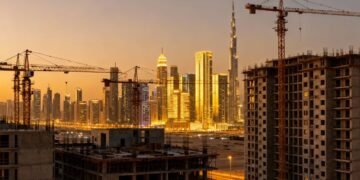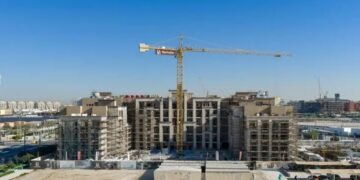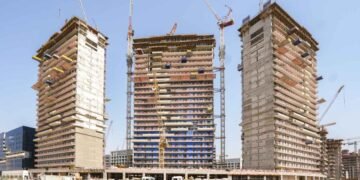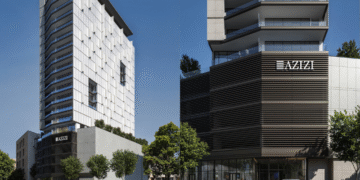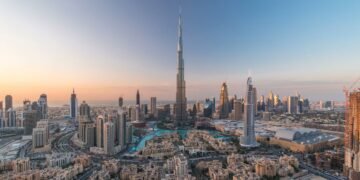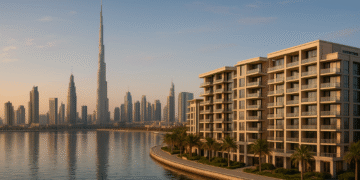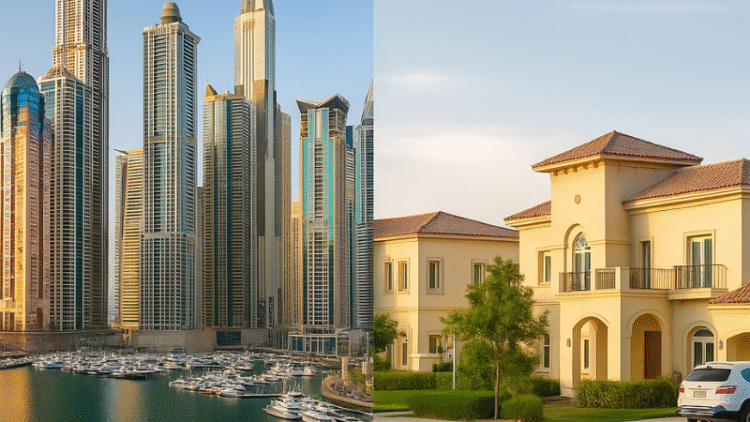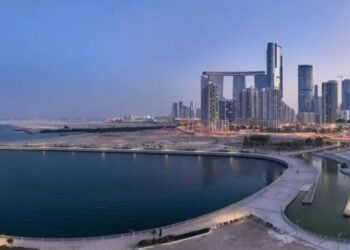Dubai’s real estate market continues to attract Indian investors seeking both lifestyle benefits and long-term returns. But one of the most important—yet often misunderstood—decisions for buyers is whether to purchase freehold or leasehold property. The choice can significantly impact ownership rights, investment returns, and resale potential.
Understanding the Basics
In Dubai, freehold ownership grants buyers full rights to the property and the land on which it stands, with no time limit. Owners can sell, lease, or pass the property to heirs without restrictions.
Also read: Dubai Real Estate Trends 2025–26: What Indian Investors Should Watch For
Leasehold ownership, on the other hand, gives the buyer rights to the property for a set period—typically 30 to 99 years—after which ownership reverts to the freeholder. While leasehold is often more affordable, it comes with contractual conditions and limitations on modifications, subleasing, and resale.
Ownership Type and Investment Returns
Ownership structure plays a decisive role in shaping a property’s long-term value, liquidity, and overall investment potential.
According to 11Property, “Freehold properties typically offer a higher potential for return on investment (ROI) due to the security of ownership and flexibility to modify or rent out the property without restriction… Leasehold properties, while more affordable, come with declining value as the lease term shortens.”
For Indian investors, this distinction is critical. Freehold ownership in Dubai grants perpetual rights to the property and the land it stands on, aligning well with long-term wealth-building strategies. Leasehold, while providing a lower entry price, may require careful consideration of the remaining lease term and exit strategy to protect capital.
Market Trends and Regulatory Landscape
Dubai’s property laws were updated in 2002 to allow foreign nationals to purchase freehold properties in designated areas, such as Downtown Dubai, Dubai Marina, and Palm Jumeirah. Leasehold options, however, are common in more central, established districts, offering a lower entry point into prime locations.
Industry analysts note that demand for freehold properties has risen in recent years, particularly among international buyers from India, the UK, and Europe. This is due in part to Dubai’s absence of property taxes, a transparent land registry system, and investor-friendly regulations.
Perspective for Indian Investors
For many Indian buyers—particularly High-Net-Worth Individuals (HNIs) and Non-Resident Indians (NRIs)—Dubai’s freehold market offers the closest parallel to property ownership back home, with the added benefits of higher yields and a globally connected location.
- Proximity: Just a short flight from major Indian cities.
- Ease of Transactions: Streamlined property registration and secure escrow systems.
- Residency Benefits: Long-term visas linked to property ownership.
Also read: Paying Rent or Paying EMI in Dubai: What’s the Smarter Choice in 2025?
Leasehold may still appeal to those looking for short- to medium-term stays, or for investors seeking a more budget-friendly entry into established neighborhoods.
Practical Considerations Before Buying
- Check Developer Reputation: Especially for off-plan projects.
- Review Lease Terms: For leasehold, understand renewal clauses, maintenance responsibilities, and restrictions.
- Assess ROI Potential: Look at historical price trends and projected rental yields.
- Factor in Service Charges: Particularly in high-amenity developments.
The Bottom Line
Choosing between freehold and leasehold in Dubai is not just a legal decision—it’s a strategic one. For Indian investors, the right choice depends on investment horizon, budget, and intended use. With freehold, you secure long-term control and potential capital appreciation; with leasehold, you gain affordability and access to certain prime locations, but with time-bound ownership.
As Dubai’s market matures and transparency increases, informed decisions based on verified data—such as the insights from 11Property—will help investors maximize both security and returns.
Discover more from Invest Dubai Today - Dubai Realty Insights
Subscribe to get the latest posts sent to your email.




